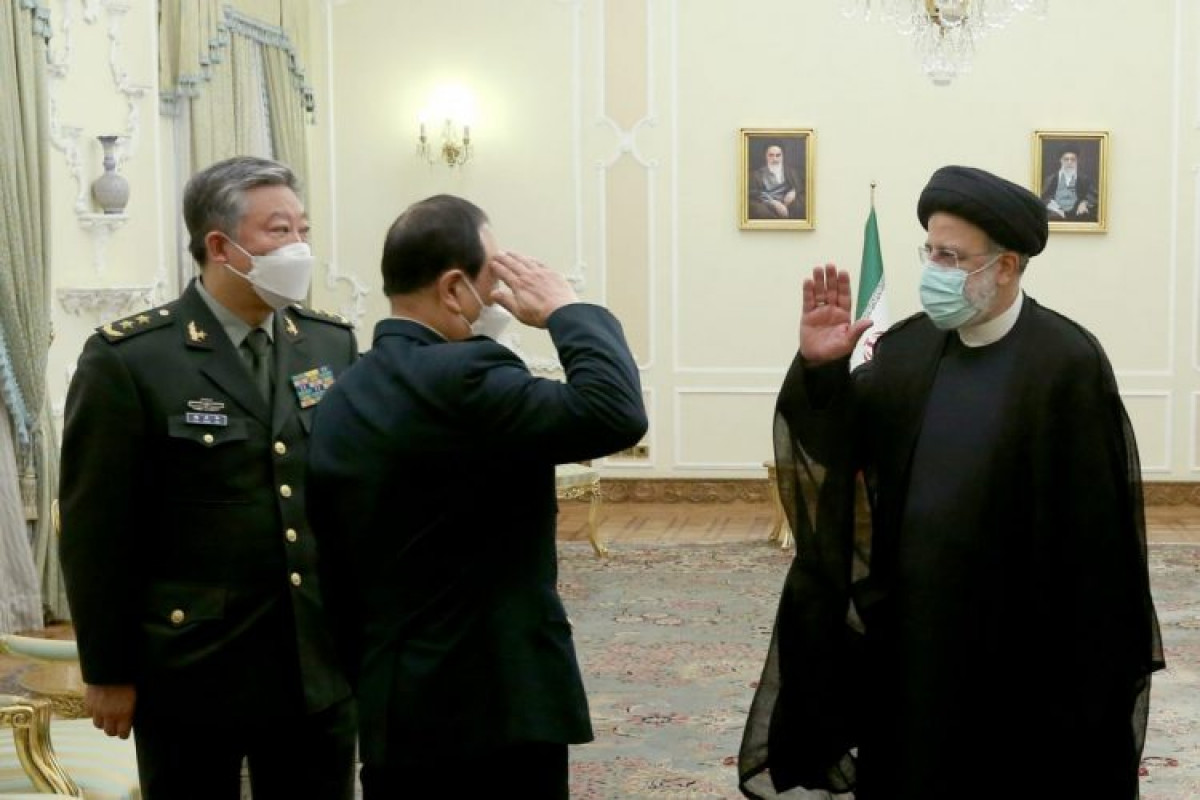 413
413
Iran and China are two leading global powers with robust domestic military capabilities. Analysts believe that enhancing these capabilities could be a critical component in achieving defensive deterrence for both nations against their common adversaries.
In this regard, new needs have emerged in Iran’s security doctrine due to the wide-ranging political and security developments that have taken place in the Middle East in recent years, particularly the humiliating US pullout from war-torn Afghanistan, which necessitated stronger military cooperation with eastern nations such as China. In light of this fact, the Chinese State Councilor and Minister of National Defense, Wei Fengh, recently flew to Tehran to meet with President Ebrahim Raisi, the Iranian Armed Forces Chief of General Staff, and the Iranian Minister of Defense.
During a meeting with General Wei Fengh, President Raisi stressed that regional and global developments show the value of Tehran-Beijing strategic cooperation more than ever, saying ” [Western] unilateralism and hegemony are aimed at controlling nations, and impeding long-term economic growth. Only with the cooperation of independent and like-minded powers can unilateralism be confronted and stability and order be established.”
In a meeting with the Iranian Defense Minister, General Fengh also stated that the United States’ hegemonic and unilateral approaches are at the root of many global wars and insecurities, saying: “Cooperation between the Armed Forces of the Islamic Republic of Iran and the People Republic of China shall play an enormous role in defying [US] policies and fighting terrorism.”
At this meeting, the two sides denounced the US destabilizing actions that have led to the spread of instability worldwide and discussed strategies for extending and deepening Tehran-Beijing defense and military cooperation. The two sides viewed the expansion of bilateral cooperation as an indispensable factor, contributing to greater regional and global stability.
According to observers, this trip could mark a watershed moment in the two nations’ military and security relations. Tehran’s purchase of modern Chinese weaponry, joint military drills in the Persian Gulf, and seeking to address mutual security topics in Central Asia, particularly in Afghanistan, are all examples of how the two countries can further enhance their sustainable efforts to undermine the US hegemony.
On the other hand, Wei Fengh’s meaningful visit to Tehran took place in a milieu where the United States and Europe are deeply embroiled in the Ukraine crisis, while the Vienna nuclear negotiations have come to a standstill due to Washington’s usual chicaneries.
To shatter the blockade that the US is attempting to impose on their geopolitical environment, Iran and China must work closely together, notably on the military and security fronts, which will convey a powerful message to both the West and its regional allies.
Finally, the rapid political, security, and military events that have followed the US expulsion from the region clearly demonstrate that Washington is pursuing British involvement in establishing new global military equations, with the primary goal of containing independent countries like Iran and China while also giving the Zionist regime a new vicious role in carrying out Washington and London’s proxy wars.
Comment
Post a comment for this article